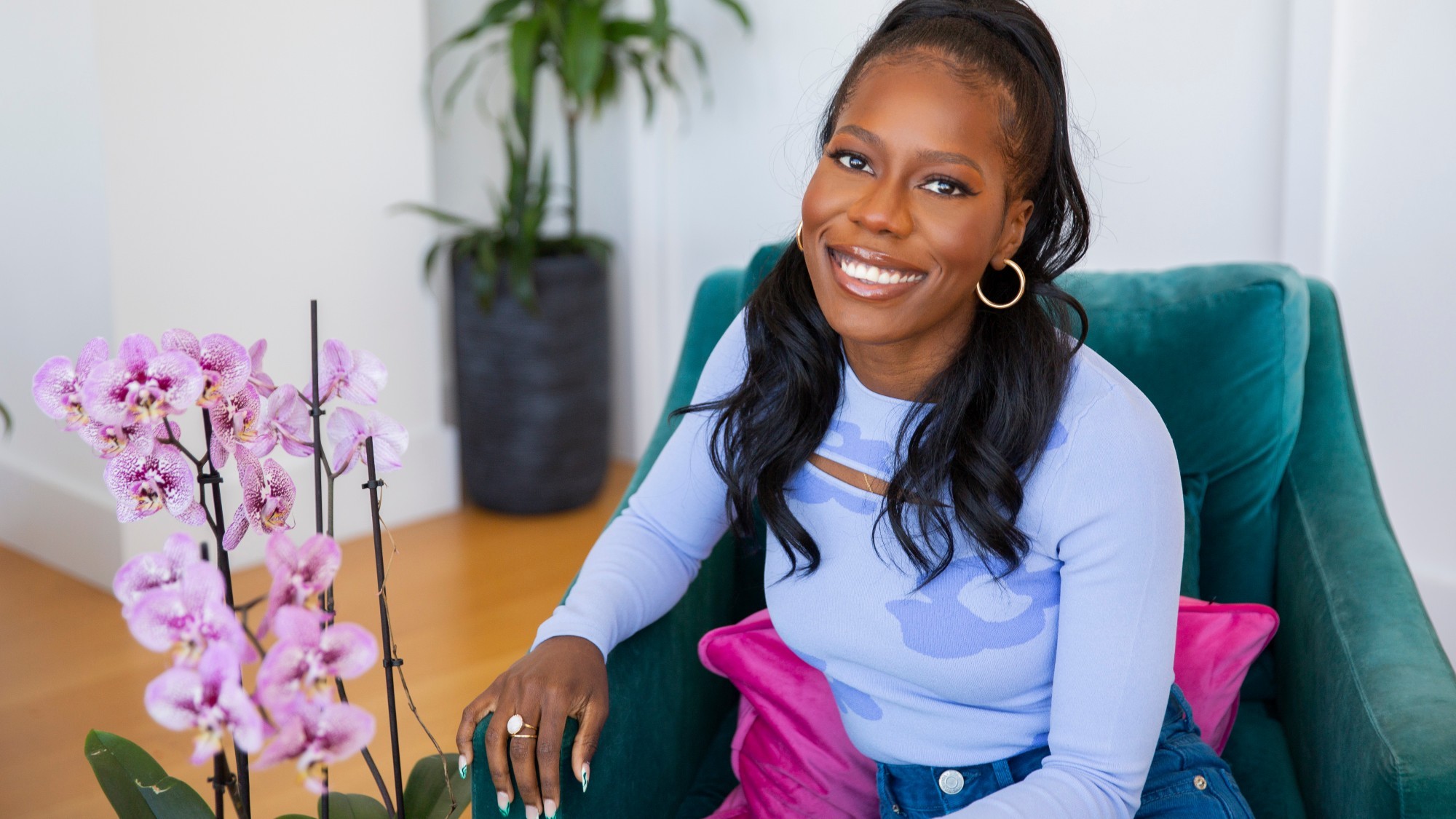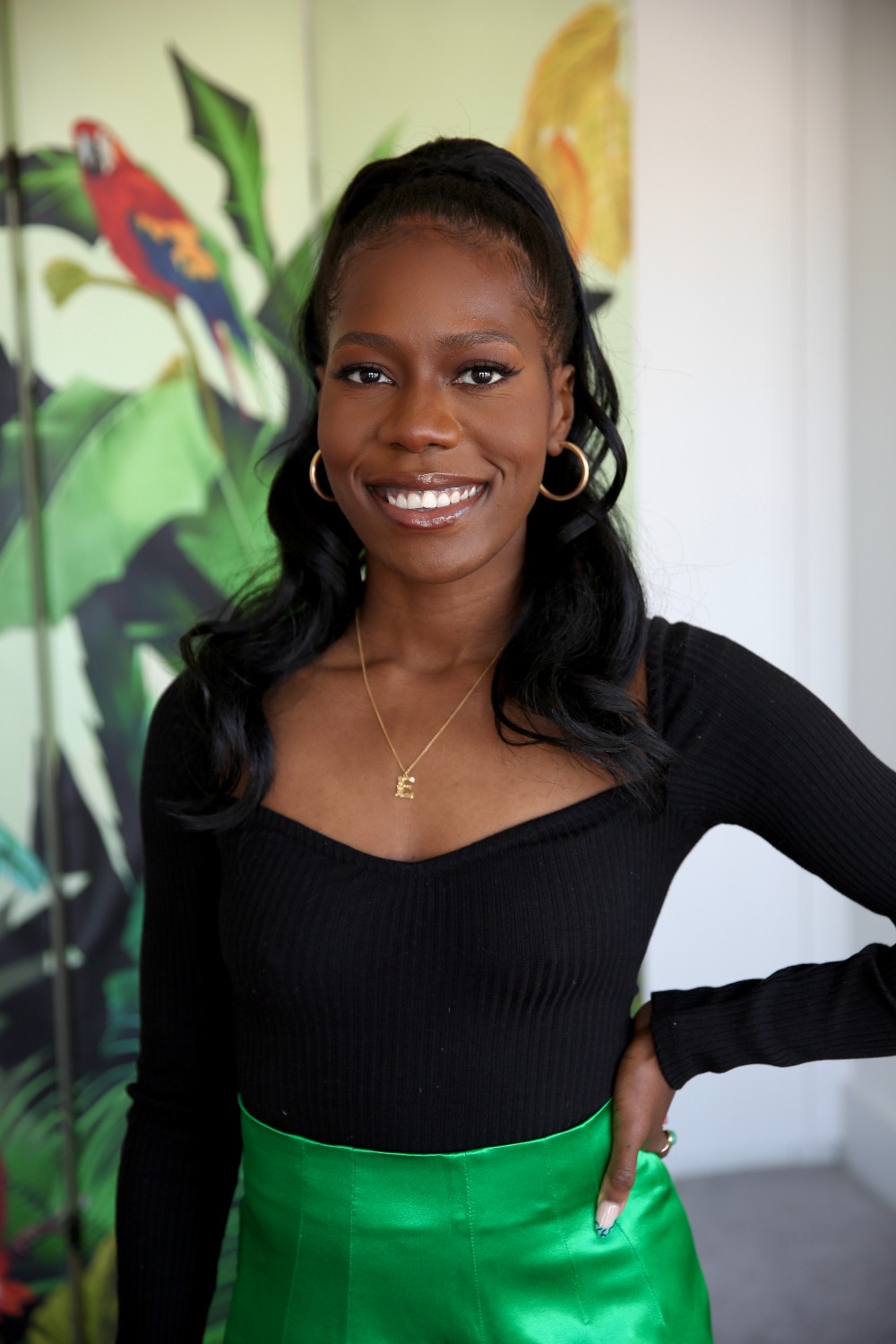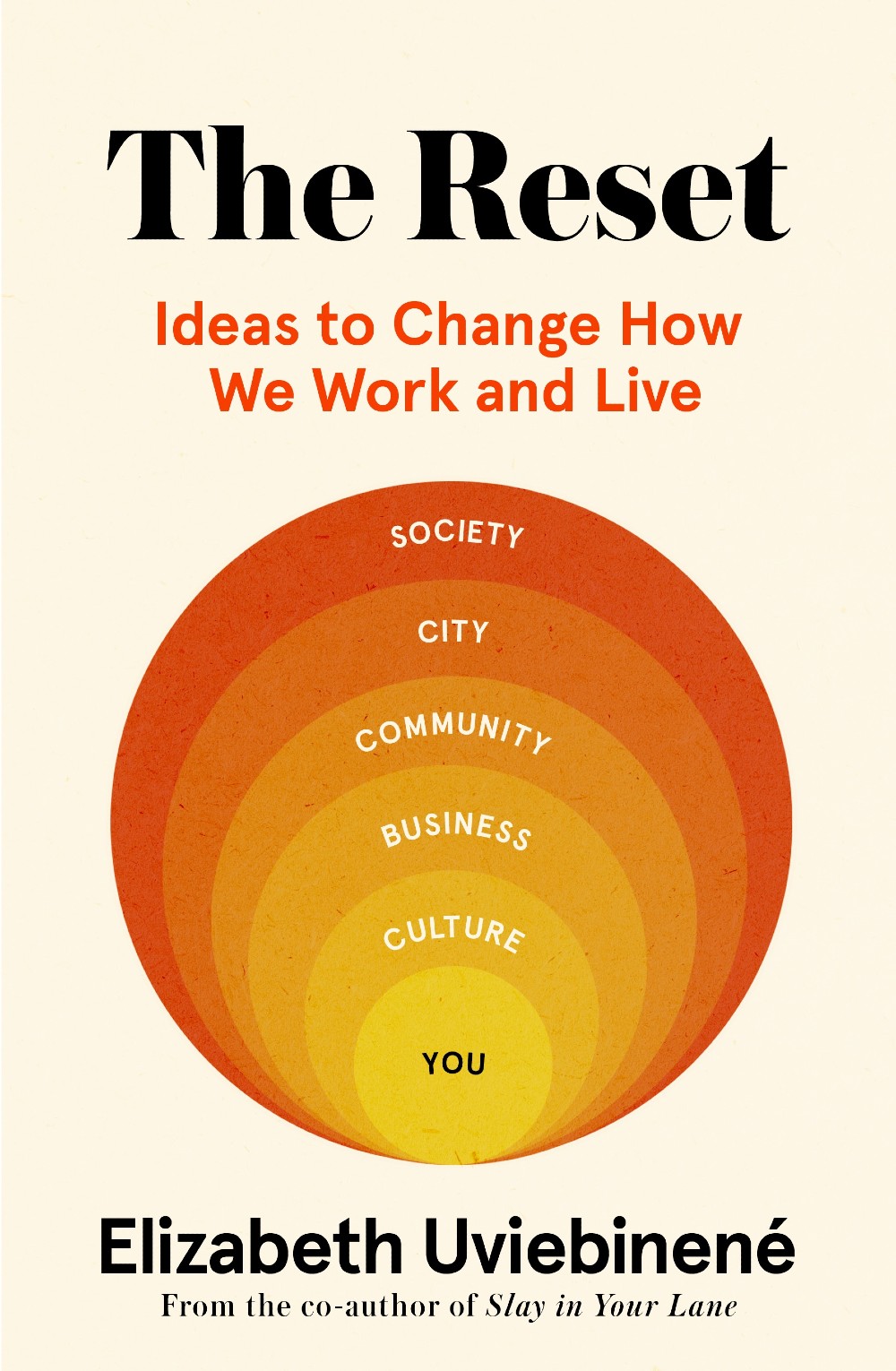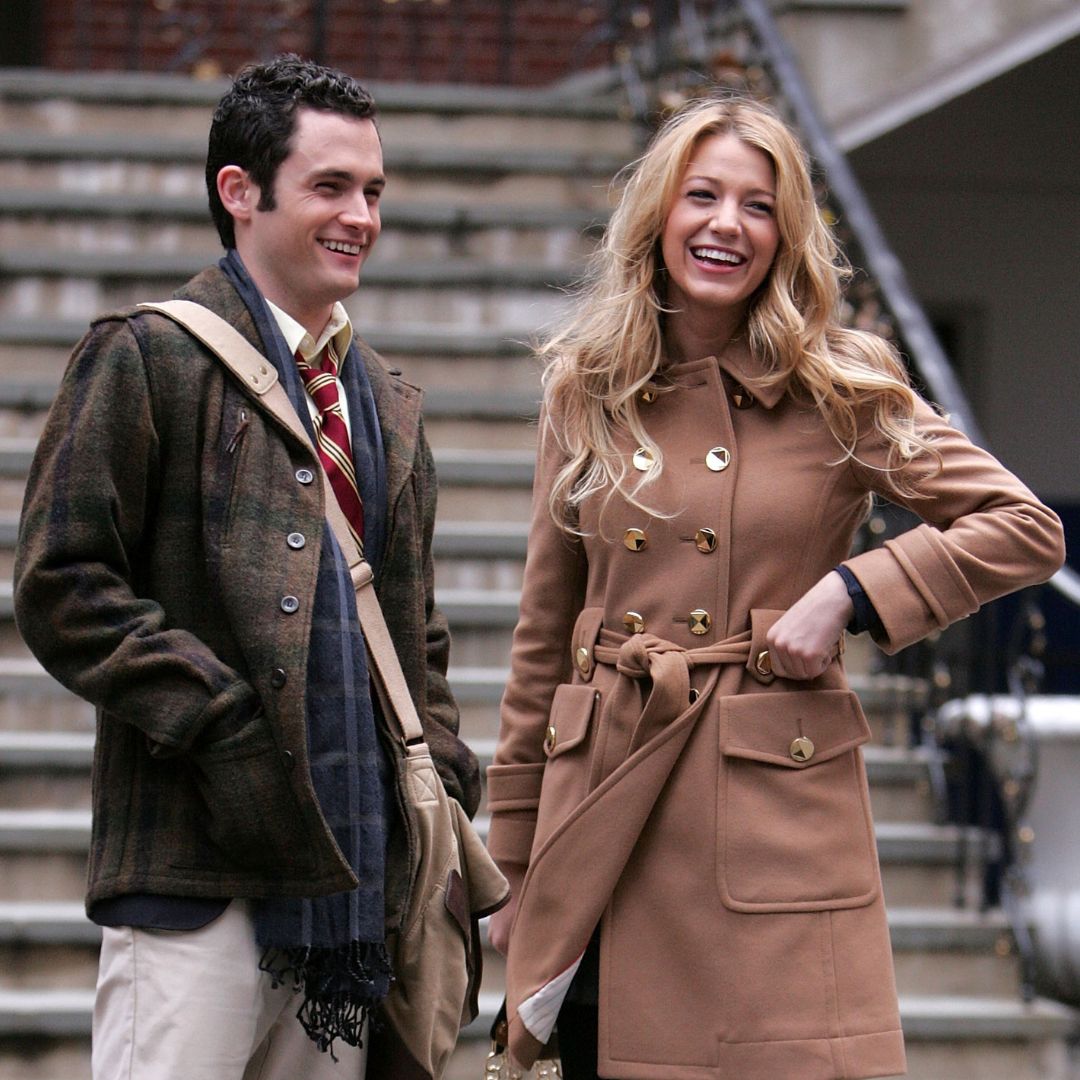"Be honest, is work really working for you?" asks Elizabeth Uviebinené
Feeling burnt out, anxious, lonely or depressed? If you’re ticking any of these boxes, Elizabeth’s new book, The Reset, will empower you to negotiate a better way of working and living. She talks to us about her big ideas


Feeling burnt out, anxious, lonely or depressed? If you’re ticking any of these boxes, Elizabeth’s new book, The Reset, will empower you to negotiate a better way of working and living. She talks to us about her big ideas
“We’re at a unique point in history,” Elizabeth Uviebinené is telling me, “A unique point, where we can be empowered to find our voice collectively and individually. This is a chance to reset the tensions around work. A time where we can write a new social contract with employers, to stop the pandemic of burnout, loneliness, depression and anxiety that’s in our current work package.”
Uviebinené’s passion about resetting how we live and work is infectious and eye-opening. It’s been a long day at my WFH desk when I call Uviebinené, the award-winning author, speaker and columnist at the Financial Times, and five minutes into the interview, I already feel re-energised, as she reveals a way to the promised land of work/life balance. And she should know. Uviebinené’s first solo book, The Reset, is the result of a year-long investigation into ideas for radically shifting how we work and live.
Although Uviebinené’s desire to investigate these ideas predates the pandemic, this spring’s publication of The Reset is perfect timing, as many of us are reassessing, in the aftermath of the pandemic, how we want to work and live. It’s also kind of ironic that it’s taken a global health pandemic to force the conversations about the way we work to be taken seriously by employers, businesses, multi-national mega-buck corporations.
But where’s our flexible-working utopia?
What felt like an overnight pivot to WFH back in March 2020, left bosses with no choice but to trust employees, that yes, we are super-productive even when we’re not visible in the office. However, Uviebinené’s manifesto makes it clear we are far from achieving a flexible working dream.
“We got rid of the office in the pandemic. We had to come up with new processes and make connections via Zoom,” she says. “But the last 15 months has been far from a flexible working utopia.”
Achieving flexi-working and female empowerment at work are issues Marie Claire has championed for years, because there’s no denying the link between the way we work and how it affects our mental and physical health. The last few years has seen a huge rise in burnout, anxiety and loneliness. The pandemic has only exacerbated this, with a she-cession impacting women’s careers disproportionally, trends and stats Uviebinené’ is all too aware of.
Marie Claire Newsletter
Celebrity news, beauty, fashion advice, and fascinating features, delivered straight to your inbox!
“The problem with this ‘new way of working’ is it's riddled with the same problems and mindsets,” she says. “We have a toxic work culture, where being ‘busy, busy, busy’, was celebrated and seen as a rite of passage. Now this treadmill of constantly being ‘on’ and we’re constantly burning ourselves out. Millions were experiencing burnout, anxiety and depression before the pandemic. Now with lines blurred between work and home life the situation has worsened.”

She's on a mission to stop this worsening situation and offer people an alternative to being on the treadmill. Uviebinené has always been an optimistic visionary. The Marie Claire Future Shaper’s debut bestseller, Slay In Your Lane, co-authored with best friend Yomi Adegoke, brought her acclaim for offering a guide to a better, brighter - and visible - future for young black British women. Now, with The Reset, she’s offering a manifesto for everyone - a holistic examination at what our individual needs are and how this affects everything. Uviebinené’s mission is to make you stop and rethink your relationship with work (where you do it, how you do it, what times do you do it etc). She’s challenging us all to task employers into a new social contract that creates a world of work that’s more balanced, inclusive and better for everyone.
You’re ready for The Reset if you believe:
* Being busy isn’t an identity
* Perks aren’t office culture
* Profit isn’t all you want from business
* Loneliness shouldn’t happen in a community
* Inequality isn’t inevitable in a city
* We can all shape society
Offering provocative and uplifting optimistic views on the future of work, Uviebinené interviewed some of the most progressive politicians, business leaders and thinkers working in the UK today in The Reset – such as Mayor of London Sadiq Khan, flexible working campaigner Anna Whitehouse, Channel 4 CEO Alex Mahon and trend forecaster Karen Rosenkranz.
“It was fascinating speaking to all these amazing people, real experts at the forefront of this conversation,” she says. “I want to show that a one-size-fits-all approach doesn’t work. The Reset is about showing people had to gain more control, and hopefully forcing businesses to listen and take action.”
The Reset – how to achieve it
What changes would you like to ask for at work? Maybe you know already. The pandemic has given us plenty of time to work out how we’d love to restructure their lives. Resetting how you live and work, is all about working out what makes you happy and what makes you productive. Then having the confidence to believe in yourself and ask for it.
“We underestimate the power of our voices and we underestimate the power of coming together,” Uviebinené says. “We have this once-in-a-lifetime opportunity to redefine what is acceptable and what’s not. Not everyone can demand change at work, but we can only create a cultural shift if we ask for choice and freedom where we can. If we assess our lives, work out the choices we need and ask for them. If it’s not possible, at least you asked, and might make a difference to someone else.”

Uviebinené suggests you write down what your idea of a ‘good day’ looks like, by asking questions such as, what time would you ideally wake up? If you’re not a morning person, maybe you’d be more productive for your company rescheduling later working hours or vice versa if you’d rather finish work at 3pm every day. “By interrogating what you really desire and what you want to achieve in terms of how you live and work,” says Uviebinené, “then you’ll work out what your reset is.
The Reset personal development plan
These are just a few of the questions that may help you find your reset setting
* Where would you prefer to live?
* Are you prioritising your mental wellbeing?
* What’s been great about the last year and what hasn’t been so great?
* What have you learned about yourself?
* What’s really important to you?
* Are you holding your boss/company accountable for your growth?
* Are there gaps in your skillsets that your company can help you learn?
“If we rethink how we fit in, everything resets around us,” Uviebinené says. “The work culture we exist in, the businesses we work for, the communities we’re a part of, the cities we live in and the society we shape. We can’t just rethink one strand of society; we need to rethink everything together.”
* The Reset by Elizabeth Uviebinené (Hodder) is available now
Maria Coole is a contributing editor on Marie Claire.
Hello Marie Claire readers – you have reached your daily destination. I really hope you’re enjoying our reads and I'm very interested to know what you shared, liked and didn’t like (gah, it happens) by emailing me at: maria.coole@freelance.ti-media.com
But if you fancy finding out who you’re venting to then let me tell you I’m the one on the team that remembers the Spice Girls the first time round. I confidently predicted they’d be a one-hit wonder in the pages of Bliss magazine where I was deputy editor through the second half of the 90s. Having soundly killed any career ambitions in music journalism I’ve managed to keep myself in glow-boosting moisturisers and theatre tickets with a centuries-spanning career in journalism.
Yes, predating t’internet, when 'I’ll fax you' was grunted down a phone with a cord attached to it; when Glastonbury was still accessible by casually going under or over a flimsy fence; when gatecrashing a Foo Fighters aftershow party was easy-peasy-lemon-squeezy and tapping Dave Grohl on the shoulder was... oh sorry I like to ramble.
Originally born and bred in that there Welsh seaside town kindly given a new lease of life by Gavin & Stacey, I started out as a junior writer for the Girl Guides and eventually earned enough Brownie points to move on and have a blast as deputy editor of Bliss, New Woman and editor of People newspaper magazine. I was on the launch team of Look in 2007 - where I stuck around as deputy editor and acting editor for almost ten years - shaping a magazine and website at the forefront of body positivity, mental wellbeing and empowering features. More recently, I’ve been Closer executive editor, assistant editor at the Financial Times’s How To Spend It (yes thanks, no probs with that life skill) and now I’m making my inner fangirl’s dream come true by working on this agenda-setting brand, the one that inspired me to become a journalist when Marie Claire launched back in 1988.
I’m a theatre addict, lover of Marvel franchises, most hard cheeses, all types of trees, half-price Itsu, cats, Dr Who, cherry tomatoes, Curly-Wurly, cats, blueberries, cats, boiled eggs, cats, maxi dresses, cats, Adidas shelltops, cats and their kittens. I’ve never knowingly operated any household white goods and once served Ripples as a main course. And finally, always remember what the late great Nora Ephron said, ‘Everything is copy.’
-
 Penn Badgley and Blake Lively kept their breakup a secret from the Gossip Girl cast and crew - here's what we know about their former relationship
Penn Badgley and Blake Lively kept their breakup a secret from the Gossip Girl cast and crew - here's what we know about their former relationshipBy Jenny Proudfoot
-
 Spring has finally sprung - 6 best outdoor workouts that are totally free and boost both body and mind
Spring has finally sprung - 6 best outdoor workouts that are totally free and boost both body and mindSoak in the nature and boost Vitamin D *and* endorphins.
By Anna Bartter
-
 This iconic rose perfume is a compliment magnet—it makes me feel ‘put together’ after just one spritz
This iconic rose perfume is a compliment magnet—it makes me feel ‘put together’ after just one spritzGrown-up and elegant, yet not at all dated.
By Denise Primbet